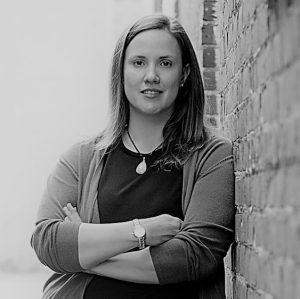
What do you do?
I have worked at the intersection of National Security and International Development for the last 15 years since graduating college, in a variety of positions. I was first an academic, spending several years doing fieldwork in Central Africa, and taught at the college level for 3 years after graduating with my PhD in 2013. I was doing some consulting in studies of elections, water, development issues, political development, conflict and other topics in sub-Saharan Africa in my ‘free’ time. In 2016, I decided to go back to fieldwork as a full-time consultant. I loved teaching students about politics, but I also felt a pull to be doing the work myself, and I have wanted to be in sub-Saharan Africa since I was a teenager. Shortly thereafter, ORB found me — it’s a monitoring, evaluation and research firm serving mostly government clients. I work in senior management in our monitoring and evaluation practice groups and do a lot of client and business development. I still get to experience the field challenges, completing 6 trips in 2019 — Somalia, Mali, Niger, Burkina Faso, St Kitts and Nevis, and Burkina Faso again (while pregnant!), while also meeting new clients, pursuing new research programs and strategies, and striving to understand the challenges we face in these fields. I always thought I would be doing something research focused, and I love that my company builds and executes really interesting studies in over 104 countries on a variety of topics. It is never boring in my office!
How do you use your EPPS education in your current profession?
I built upon my BA (2006) by going to graduate school in Political Science — Drs. Pineres and Holmes were instrumental in putting me on that path.
What value has your EPPS education brought to your life and/or work?
Dr. Holmes in particular remains a very close colleague, confidant and friend, encouraging me academically as well as just more general practical concerns. She always has great advice on kidnapping insurance! EPPS provided me both the academic foundation to do the kind of work I do now as well as practical, survivable ‘how to be a working adult’ skills I still rely on — time management, stress and work/life balance as well as how to be a good colleague and present yourself well to employers and clients.
Have you received professional honors or recognition that you’d like to share here?
I was a Fulbright scholar under various programs twice, and I’ve testified before the US House and Senate on post-conflict Africa. I’m also recognized as an expert on the post-conflict politics of Burundi- I’ve been featured in the Washington Post, Foreign Policy, Al-Jazeera, BBC, France 24, and a variety of other media.
What advice would you give current and future EPPS students?
Build relationships with your professors, you never know when they will become your colleagues! Plan for what you want to do after EPPS while you are there — take advantage of your resources, including your colleagues and support staff. Take a statistics course, even if you don’t want to initially!